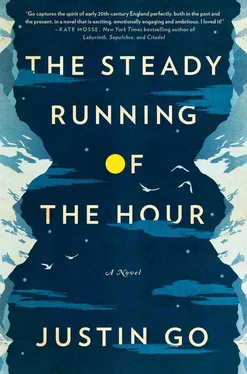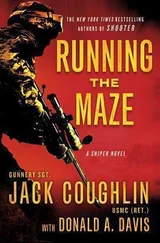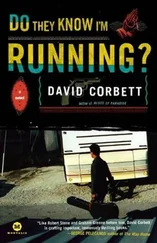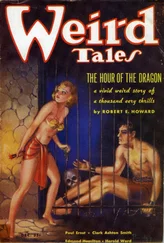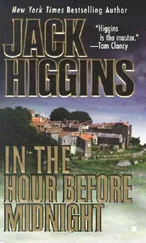— All you care for is the bloody baby.
— You’re hysterical. We must go back—
— I’ll never go back in there. Never.
Imogen staggers through the powdery shadows. She veers from the path by accident, stepping in heaps of soft snow that come to her knees. Eleanor grasps at her sister’s shoulders but Imogen pulls away and goes on downhill, zigzagging through the trees, the Gladstone swinging in her hand. She falls down twice and her back is covered in snow as she nears the lakeshore, hobbling among the stones.
Imogen finally reaches the pier. She runs down its length until she stands on the final rickety plank, the vast frozen lake spread before her. It looks as empty as anything she has ever seen, obscene in its bare white solitude. Eleanor catches up and tries to pull her own fur hat over Imogen’s head, but Imogen struggles away. Eleanor’s candle goes out. Their faces are in darkness.
— Just let me go. I can’t do it. I know I said I could, but I can’t. We’re allowed some mistakes, aren’t we? Our lives can’t end because of one mistake—
— I’m not keeping you here.
— There’s no one else.
— Then go on. Run away from here, see if it solves everything. I shan’t stop you.
Imogen is shivering. Her coat is still unbuttoned at the neck but she holds the collar together with her bare hands. She has forgotten her gloves and her hands are shaking.
— I don’t want to live without him.
Eleanor watches her sister shivering before the lake. Finally she pulls her hat on Imogen and puts her arm around her. Slowly they begin to climb the path back to the house.
— I can’t live without him, Ellie. I thought I could, but I can’t—
— I know. Hush, darling. I know.

— Can you hear it? Mireille whispers. It’s the train.
Her voice is so low that I barely catch it. We stand ten feet apart on the station platform under an iron-gray sky, both of us looking down the tracks. No one else is here. The wind whips our hair and lifts the refuse of departed travelers, empty paper cups and plastic wrappers writhing and coasting along the platform. Down the road at the railway crossing, the ruby lights blink in turn as the striped barrier lurches down.
I swing on my backpack. Mireille reaches into her bag and hands me a parcel wrapped in brown paper.
— Un petit cadeau , she says. Ça ne coûte rien.
— I didn’t get you anything.
Mireille smiles. — I know. How many times do you change trains?
— Three. It was the cheapest way. Lille, Brussels and Düsseldorf.
— We don’t make it easy for you to get there.
The train appears now, a distant point on the tracks ahead. The loudspeaker chimes twice and a recorded voice announces the arrival.
— Mireille, listen. I’m sorry I’m leaving like this. I’ll call you from Berlin—
— Au revoir .
She touches my hand and starts off down the platform. I run after her, but before I reach her she stops and turns to me.
— Everyone said you were using me for a place to stay. They told me not to get too close to you, because sooner or later you’d just go. But I didn’t listen to them. Was I wrong? Were you just using me?
— Of course not—
— How do I know that?
— Because I’ll come back.
Mireille shakes her head.
— Tristan, I want to believe that. But I don’t even know if you do.
For a moment we only look at each other. I run my hand over my face, wondering if I should get on the train. Mireille comes closer and touches my shoulder, forcing a smile.
— I hope you find what you’re looking for.
She turns and walks off down the platform. The conductor is waving at me and calling for boarding, so I get on the train and take a seat beside the window. I unfold my tray table and set the parcel down.
As the train pulls away from the station, I tear away the brown paper to find a square metal case, dented and rusted, small but with a solid heft. It opens on hinges, revealing a brass disk in its fitted leather setting. I snap open the disk’s cover. An antiqued white face indicating the four cardinal directions, with every degree of variation demarcated on the ivory dial. A compass. There is an engraving on the reverse: Cruchon & Emons London 1917 .
There is handwriting on the scraps of brown paper. I piece together the fragments on my tray table to read the message. It is in French and it takes me a moment to understand it.
Dear Tristan,
I found this in an antique shop in Abbeville. The dealer swore it was English, from the war, pulled out of a field by some farmer. I don’t believe it, and I don’t think it works. But if anyone could find out, it would be you.
Mireille
I put the scraps in a plastic bag, hiding them deep in the lining of my backpack against the packframe. It’s over now and there’s nothing I can do. Unless I forget about Berlin and get off at the next stop.
— You can’t do it, I whisper. Not now.
The train is gathering speed. Through the window I see the other cars curving ahead as the tracks gradually change direction. I look down at the compass. The instrument has been disturbed from too much movement, the needle swinging wildly in every direction. I hold the compass level and watch the dial. Slowly the needle swings to fifty degrees, north by northeast. The compass still works.

2 January 1917
La Calotterie
Pas-de-Calais, France
Private Mayhew knocks twice on the door and enters the bedroom. Ashley lies in bed, the feather duvet drawn tight against his chin. His eyes are open. He is looking at the ceiling.
— Morning, sir, Mayhew says. Six o’clock.
Mayhew lights the fireplace and stokes the flames until he is confident the fire is sufficient. He puts a pitcher of steaming water on the dresser and prepares a bowl of shaving cream, foaming the lather in a porcelain bowl with a horsehair brush. He brings in Ashley’s uniform on a pair of hangers, the tunic’s brass buttons freshly polished. Since Ashley’s injury Mayhew has been a better servant, and Ashley does not know if this is because Mayhew respects him more now, or simply because the battalion has been at rest these two weeks.
— Anything else, sir?
— No, that’s fine.
Ashley takes Le Journal d’Amiens from the nightstand and pages through it for a few minutes, intermittently glancing at the gray morning outside. He wishes he could finish the newspaper, but he wants to shave while the water is still hot.
He rises from bed and props the newspaper against the mirror on the dresser. He swings the blade of the razor from its black celluloid handle, swirling it in the pitcher until the metal is warm to the touch. Ashley wets his face and brushes on the lather, then draws the blade carefully across his cheek, pausing at times to consider the newspaper’s headlines.
He rinses off and looks into the mirror, studying the scar on his neck, a raised lump of pink and white tissue. Somehow it surprises him that scars are not carved in relief on one’s skin, but stand out above the surface. Ashley rubs the blemish as if he could buff it smooth. He dries his face and hangs the towel around his neck, tossing the newspaper in the fire and calling to Mayhew.
— Has the lorry arrived?
— Any moment, sir.
Ashley points to the valisse by the door.
— That can go down.
Mayhew hauls the valisse downstairs. Ashley takes the brass poker beside the fireplace and prods at the logs, the newspaper already obliterated. He is thinking of the small trunk behind him at the foot of the bed, but he does not look at it.
Читать дальше
